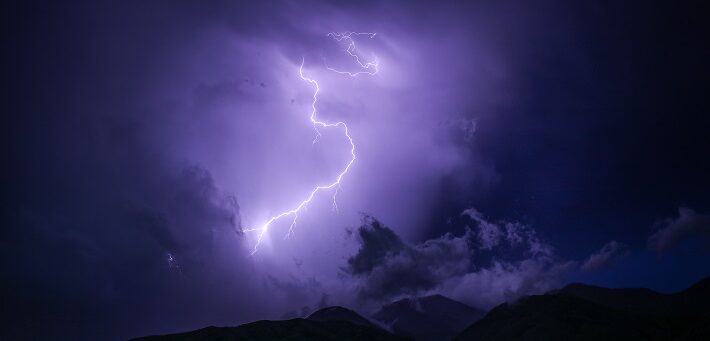Editor’s Note: In 2013, Working Preacher published commentaries that correspond with the readings for Season of Creation: Series C (Wisdom in Creation). A full listing of worship resources (including liturgies to accompany the readings) can be found under Season of Creation’s Year 3 Readings.
Humans are the only creatures on earth who have become weather makers, to our own detriment and that of other living things around us. Over the last few decades the storms we are creating have become more and more frequent, intense, and destructive. The consensus among scientists is that things are likely to get much, much wilder.
When the storms hit, some blame God for the destruction. Others see the storms as God’s judgment against particular forms of sin, even when the victims of storms include the innocent. These popular alternatives fall far short of the complexity or depth of reflection about God’s engagement with the world through storms that we find in the four passages for “Season of Creation,” Week 3. While each takes a distinctive perspective and raises challenging questions, together they affirm and even celebrate God as Lord over all creation, including storms. Each finds in the storms of life not only the threat of destruction but the source of redemption or wisdom.
Job 28:20-27
Job is the victim of human, “natural,” and divine forces. This poetic interlude (Job 28) focuses on a recurrent question raised by Job’s ordeal: “where is wisdom to be found?” Wisdom is hidden from all creatures. Not even a “bird’s eye view” or the wisdom of hindsight will help us find it; even those in the realm of the dead only hear rumors. Apparently, wisdom is not found in any one place. Nor is it a static object that can be possessed or held. God alone understands its way, but God, too, needs to go looking for it (28:23-24).
God discovers wisdom amidst the dynamic processes, balances, and tensions of creation itself. The poet depicts God ordering and limiting the stormy forces of nature, “weighing” the wind, “measuring” the waters, making rules for the rain, and plotting the pathway for the lightning to follow. God both makes room for and limits these forces, just as God also does for humans and for all the other creatures. In these dynamic, evolving relationships wisdom is discovered, named, established, and studied (28:27).
As we weigh and measure the forces of nature and discern the balances and tensions with which they hold together, do we also discern and limit our own weight and force? Have we found wisdom in the ways of creation?
Psalm 29
In Psalm 29 God’s voice (the subject of seven clauses) and power is in the storm — or is the storm itself. This is no common storm, but a true “act of God.” It moves over the waters, as at creation, breaks the cedars of Lebanon (symbols of strength and of human empires), causes both land and mountains (Sirion, verse 6, is Mt. Hermon) to skip and buck, and sweeps on across the wilderness, spinning oaks and flattening forests. Remarkably, this destructive force calls forth worship among the heavenly beings (29:1) and in the temple (29:9).
Our modern reaction to such destruction is to ask “why?” How could God not only permit, but also enact such destruction? Why should devastation call forth worship of God? The clauses that end the Psalm (29:11) may also strike us as out of place. They call upon the same Lord who gives voice to the storm also to give strength and peace to the people (29:11). We bump here against worldviews quite unlike our own. Our scientific rationality makes it harder for us to discern in nature signs of the Creator’s power and presence, whether in destruction or peace.
Do we still hear God’s voice in nature, even in destruction? Can God be both a disruptive force and the source of strength and peace? Do we still know God as the God of all creation, of earth as well as heaven?
1 Corinthians 1:21-31
In 1 Corinthians 1:21-31, Jesus’ cross and resurrection are the perfect storm, God’s ultimate intervention into the world. Like Job 28, the focus here is on wisdom, but of a kind that overturns all human forms of wisdom. Like Psalm 29, Paul talks about a demonstration of divine power, but one that is even more disruptive and destructive of human systems than the biggest of storms, overturning all our notions of power. The cross that epitomized Roman power and human weakness now reveals the full force and dimensions of God’s power.
For Paul, the cross is the defining core of a new, divinely ordered eco-system. After this storm, society can no longer be rebuilt in the same ways, with the old tools of human “wisdom” and “signs,” or the usual blueprints for factions and exploitation. Now the builders will be the weak and humble, and what they construct will be cruciform. The tools are “justice, holiness, and redemption” — words with deep history in the calling of Israel as God’s people.
Luke 8:22-25
Both Psalm 29 and Luke 8:22-25 culminate in worship, but in Luke it is not the storm itself that generates worship, but Jesus’ power to save from destructive, demonic forces — here the waters stirred up by a sudden, violent “whirlwind” or hurricane. The story draws upon deeper, older images. At creation, God brings order from the primordial waters by separating light from darkness, sky from earth, dry land from oceans and waters. Later God saves Noah and the other creatures from the flood. Then God provides a passageway through waters as the people flee their Egyptian slave lords. When Jesus wakes up and calms the storm for his disciples, it seems a much smaller miracle, but it carries with it all those earlier stories and memories. Jesus’ word frees from bondage, carries us through the flood, and inaugurates a new creation.
Echoing Job 28, Jesus is leading his disciples through the stormy sea on a journey toward what Paul would call the wisdom of the cross. Jesus falls asleep, leaving the disciples to their own resources. The sea and the storm test their faith and resilience, but they lack both wisdom and trust in his presence and power with them. Neither they nor we can discover this kind of wisdom until we follow him all the way through his conquest not merely of wind and sea, but of death itself.
Look for commentary by Bill Brown on Cosmos Sunday, Season of Creation Week 4 (Year C).

